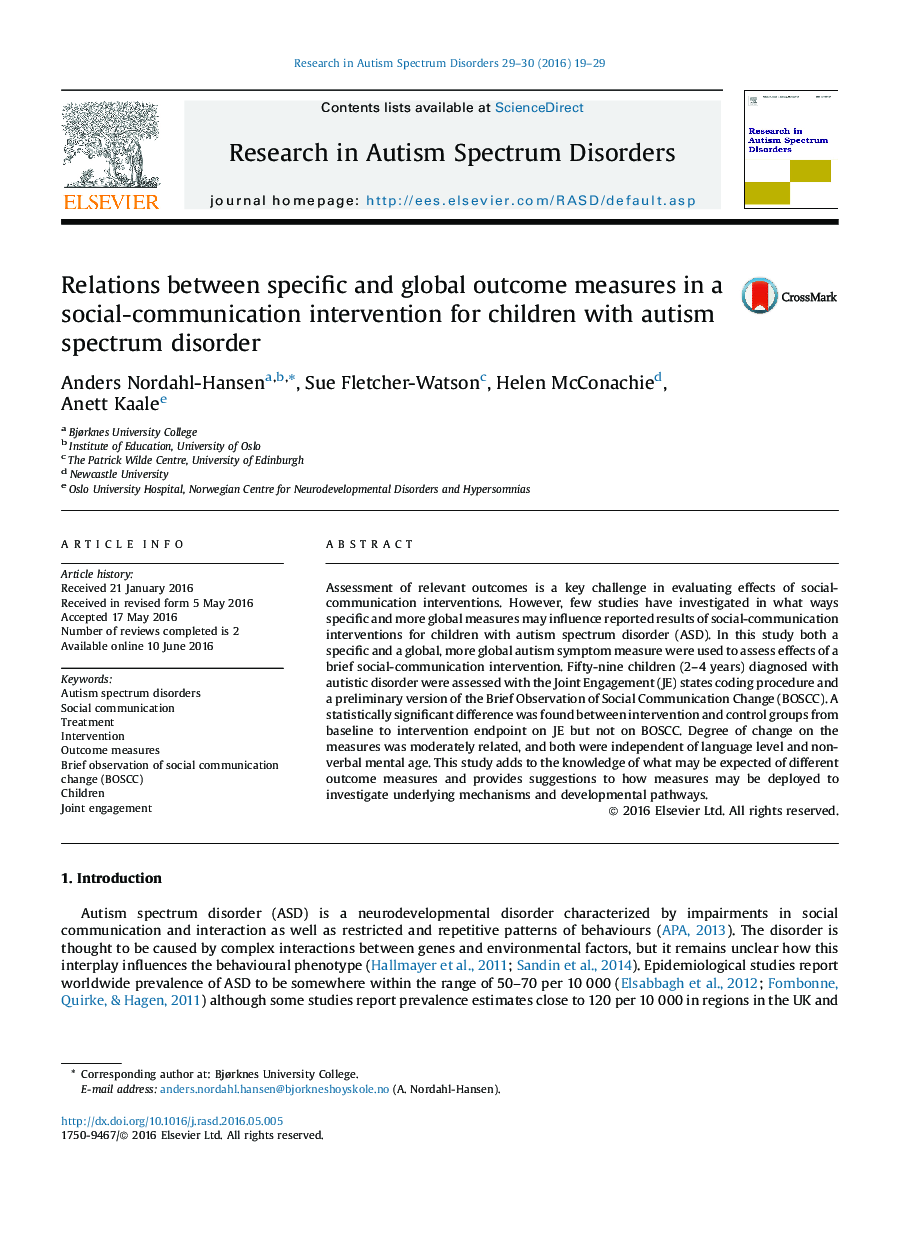| Article ID | Journal | Published Year | Pages | File Type |
|---|---|---|---|---|
| 369903 | Research in Autism Spectrum Disorders | 2016 | 11 Pages |
•Change specific to intervention targets may be apparent where global change is not.•Multiple outcome measures can strengthen the validity of the conclusions.•Joint Engagement and BOSCC codings seems to be independent of language.
Assessment of relevant outcomes is a key challenge in evaluating effects of social-communication interventions. However, few studies have investigated in what ways specific and more global measures may influence reported results of social-communication interventions for children with autism spectrum disorder (ASD). In this study both a specific and a global, more global autism symptom measure were used to assess effects of a brief social-communication intervention. Fifty-nine children (2–4 years) diagnosed with autistic disorder were assessed with the Joint Engagement (JE) states coding procedure and a preliminary version of the Brief Observation of Social Communication Change (BOSCC). A statistically significant difference was found between intervention and control groups from baseline to intervention endpoint on JE but not on BOSCC. Degree of change on the measures was moderately related, and both were independent of language level and non-verbal mental age. This study adds to the knowledge of what may be expected of different outcome measures and provides suggestions to how measures may be deployed to investigate underlying mechanisms and developmental pathways.
